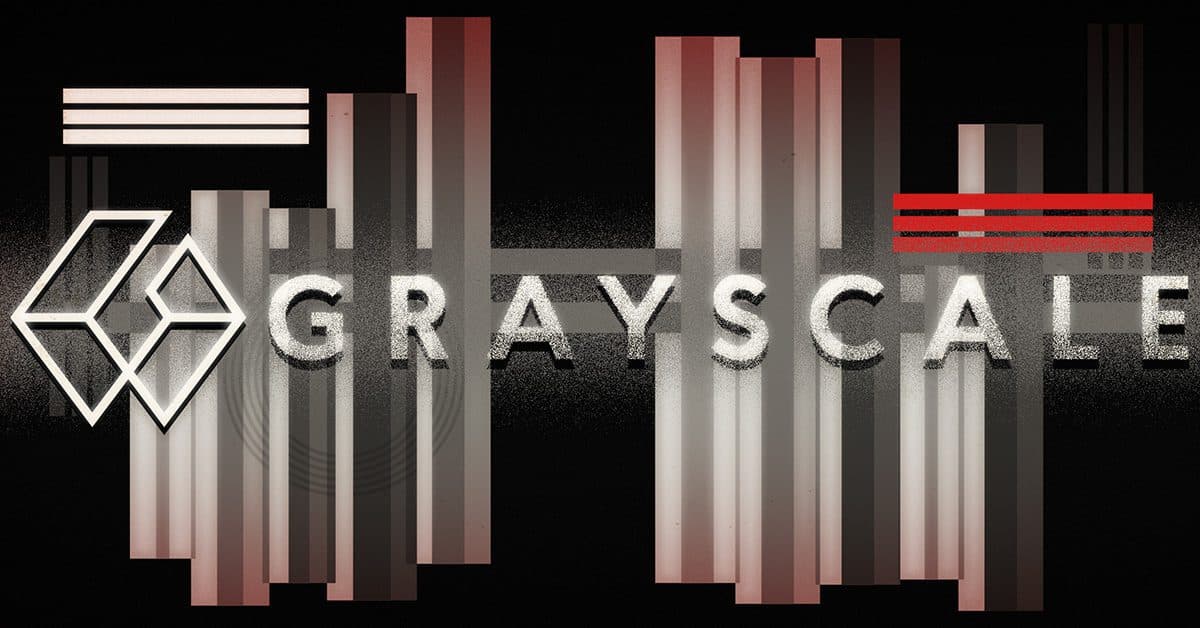Grayscale Launches Solana Trust
New product joins the firm’s 13 other single-asset investment offerings.

Blockworks exclusive Art by Axel Rangel
key takeaways
- The new offering uses the CoinDesk Solana Price Index (SLX) to strike its daily net asset value and carries a 2.5% annual fee
- The lowest price of Solana (SOL) was $0.50 in May 2020, and it grew to an all-time high of $259.96 on Nov. 6, according to CoinGecko
Grayscale Investments has launched a new trust that invests directly in Solana, extending the firm’s product lineup to 16 offerings.
The Grayscale Solana Trust invests solely in Solana (SOL), the smart contract platform conceived in a 2017 whitepaper that has seen massive growth this year.
The new product uses the CoinDesk Solana Price Index (SLX) to strike its daily net asset value and carries a 2.5% annual fee. The offering is available to eligible individual and institutional accredited investors, and the firm intends to have its shares quoted on a secondary market as well.
Investors are increasingly interested in diversifying their exposure beyond bitcoin and Ethereum, a Grayscale spokesperson told Blockworks.
“It’s one of the world’s largest cryptocurrencies by market cap, and aims to increase network speed and scalability without compromising security or decentralization — qualities that have made it a go-to blockchain for new users looking to get into crypto,” the representative added. “With 220 million users engaged in building and interacting in the crypto ecosystem, it’s important to offer products for new technologies, like Solana, as they continue to enable and encourage increased user access and adoption.”
SOL’s 2021 growth
The Solana protocol introduced the proof-of-history consensus mechanism as an alternative to pure proof-of-stake and proof-of-work blockchains. It supports high-speed and low-cost transactions on a single-layer blockchain, the firm explained, alleviating the need for additional scaling solutions that other networks, such as Ethereum, typically require.
SOL is used to power decentralized applications, making payments, paying network fees, providing network security through staking and facilitating network governance, Grayscale noted in its announcement.
The price of SOL was $211.09, as of Noon ET on Tuesday, according to CoinGecko, which was up 9.2% in the past 30 days. The coin’s lowest price was $0.50 in May 2020, and it grew to an all-time high of $259.96 on Nov. 6, the data shows.
SOL’s market capitalization was roughly $65 billion, which was the fifth-highest of all crypto coins behind only bitcoin, Ethereum, binance coin and tether.
Tushar Jain, a managing partner at Multicoin Capital, argued during Blockworks’ Digital Asset Summit in September that layer-1 blockchains are currently more reliable than the layer-2 solutions built on top of them, adding that Solana is one of his firm’s “big bets in this space.”
Matthew Sigel told Blockworks in August that there are about half a dozen layer-1 smart contract protocols with the track record, size and community engagement to perhaps someday rival Ethereum, pointing to Solana’s 50,000 or so transactions per second.
Grayscale’s Solana Trust launch was announced the same day that Hxro, a derivatives primitive built on the Solana blockchain, revealed that it had closed a $34 million funding round.
Building out its product suite
The new Solana Trust joins Grayscale’s other single-asset products, which offer exposure to bitcoin (BTC); Ethereum (ETH); basic attention token (BAT); bitcoin cash (BCH); Ethereum classic (ETC); chainlink (LINK); decentraland (MANA); filecoin (FIL); litecoin (LTC); livepeer (LPT); stellar lumens (XLM); Zcash (ZEC); and horizen (ZEN).
Grayscale recently added Solana and Uniswap (UNI) to its Digital Large Cap Fund (GDLC), which offers exposure to the upper 70% of the digital currency market. That fund launched in February 2018 and had $615 million assets under management on Tuesday morning.
Craig Salm, Grayscale’s head of legal, told Blockworks at the time that the firm could look to include SOL in future offerings. A theoretical Grayscale fund focused on layer-1 smart contract platforms, for example, would likely include Ethereum, Solana, Avalanche and Polkadot, he noted.
The firm has stayed busy on the product development front. Grayscale filed for an equity ETF focused on the future of finance earlier this month and is seeking to convert the Grayscale Bitcoin Trust (GBTC), which has $37 billion assets, to an ETF.
“We’re committed to listening to investors and satisfying investor demand for new products, while continuously providing secure, familiar access to exciting, innovative opportunities within the digital currency asset class,” the Grayscale spokesperson said.
Get the day’s top crypto news and insights delivered to your inbox every evening. Subscribe to Blockworks’ free newsletter now.





